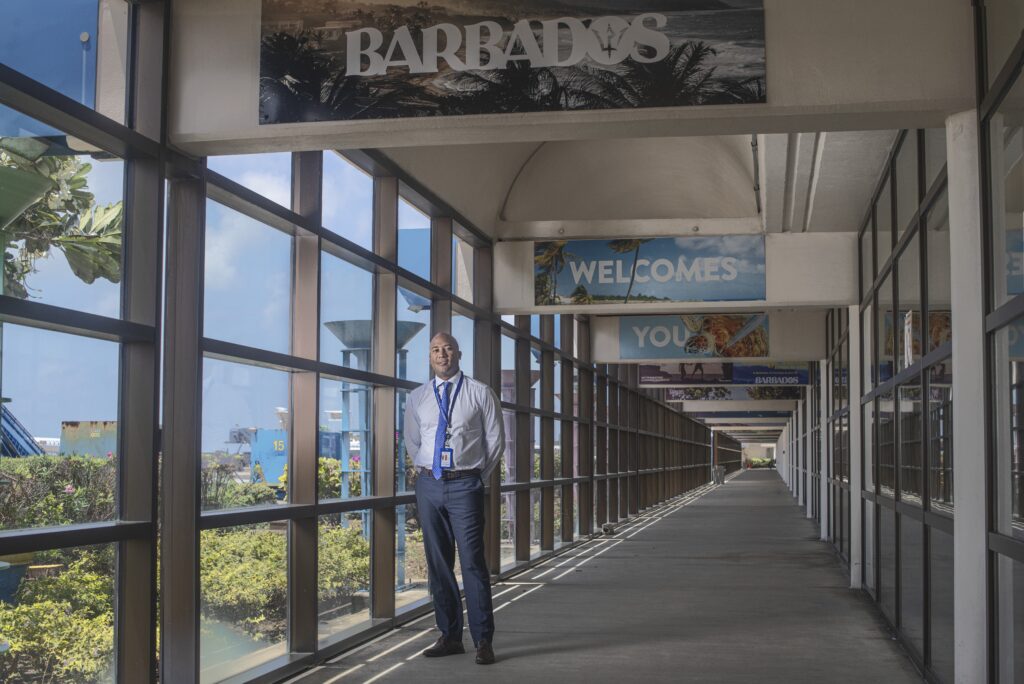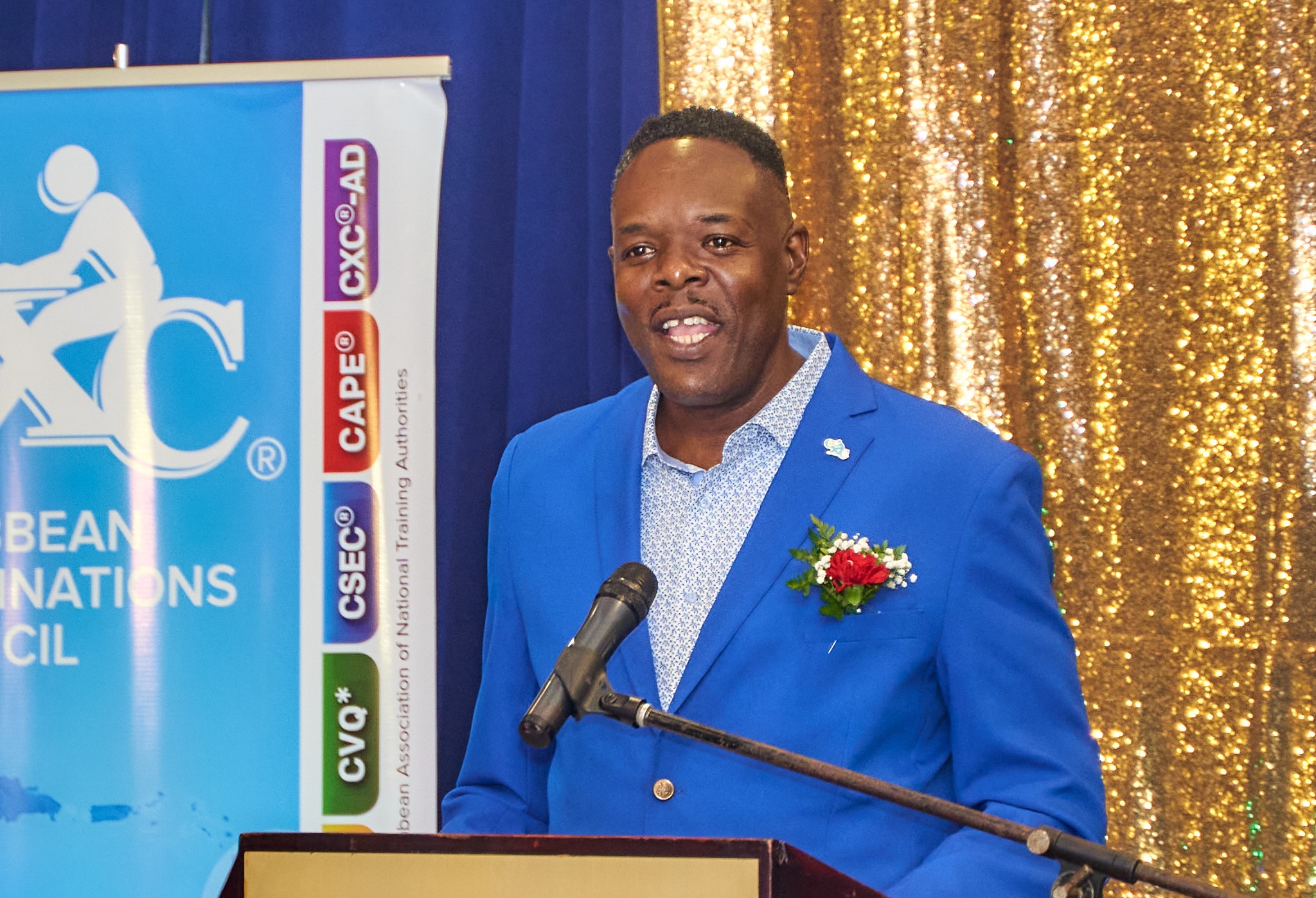Minister of Home Affairs Wilfred Abrahams Assures Barbadians of National Security Amid US Immigration Crackdown

February 1, 2025
Minister of Home Affairs Wilfred Abrahams addresses Barbadians' concerns over US immigration crackdown, ensuring national security won't be compromised. Diplomatic channels key in handling deportees.
Minister of Home Affairs Wilfred Abrahams is assuring Barbadians that Government will take the necessary steps to ensure national security is not compromised as the United States engages in a widespread immigration crackdown.
He said the country will “not be caught by surprise” by deportees being sent back, while expressing hope that the usual diplomatic communication channels will continue which involve information being shared on citizens who are repatriated.
Daily raids
As of last November there were 151 Barbadians among thousands of CARICOM citizens detained by the US Immigration and Customs Enforcement (ICE), but that number could increase significantly as the US under President Donald Trump’s new regime has embarked on daily raids across states rounding up illegal immigrants.
Abrahams, who has responsibility for the Immigration Department, told the Weekend Nation:
“Obviously you would need to know whether the persons are just people who overstayed or whether they have an actual criminal record or criminal history. If there’s anything we should be worried about from our end. Before the persons land in Barbados, we will, of course, have that information and be able to take the appropriate steps to ensure that the safety of Barbados is not compromised.”
Despite last week’s fiasco, where US military planes loaded with deportees from Colombia were prevented from landing because that country was not notified beforehand, Abrahams remains confident that the usual diplomacy will prevail.
“All agencies will be involved in ensuring that the information is shared on the persons who are coming back and that any persons of interest are adequately received,” he said.
In terms of expressed fears from the public about people being sent back without documentation, the minister said: “Obviously, it’s a concern when any undocumented persons arrive on your doorstep. We would like to believe that the immigration authorities would share the person’s history so that we are adequately informed. Having said that, once a person is on a plane, their identity must be known; you can’t put nameless persons on a plane.
“Once the persons are put on a plane to Barbados, the airline bringing them must have some manifest which will identify the passengers. As we do with everybody, and with all flights coming into Barbados, we screen the persons coming in so that we’re not caught by surprise when anybody lands in Barbados.”
Abrahams added: “So that by the time the plane lands in Barbados, we know exactly who we’re looking for. We know who has overstayed elsewhere. We’ve had a profile on every single person that comes in.
“If people think it’s a big mystery, no. If they put on 150 people on the plane . . . then we will know, before they land, exactly who was convicted of a violent crime, who got this, who got that, who we need to monitor and the police
will be notified. I can just reassure Bajans that we will deal with it how it comes, and we’re not without our own powers.”
Routine measures
He said these were routine security measures that most of the governments in the Caribbean practise.
“But it would be good to get a heads-up. We will play the ball as it is rolled and take the necessary steps to ensure that our national security is not compromised and that everybody is treated on their own merit.”
Yesterday several Caribbean media sites were flooded with reports about the possible deportation of CARICOM nationals.
Barbados’ Ambassador to CARICOM, David Comissiong, told the Weekend Nation
that while such mass deportations might be a first for the Caribbean, countries will have to “figure out” how to deal with it.
“I think it has now become fairly clear that there will be significant deportations from the United States back to our CARICOM countries. Where Barbados is concerned, I get the impression that the number will be fairly modest, and I know that our governmental authorities are already making preparations for the modest number that might be deported back to Barbados. I think some of our fellow CARICOM member states will clearly have a bigger problem than Barbados.
“We are going to have to figure this out, how we accept and reintegrate whatever numbers of our nationals that are deported.”
He added that by the CARICOM Heads of Government Conference in Barbados next month, regional leaders “should have a very good idea of how severe the problem is going to be”.
“It will present us with a good opportunity for putting our heads together and seeing how, as a community, we can help each other to be able to accept our nationals and to reintegrate them properly into their home countries,” Comissiong said.
However, Sir Ronald Sanders, Antigua’s Ambassador to the US, writing in his syndicated column, warned that the deportation of such large numbers could have a negative effect on Caribbean communities.
“Absorbing large numbers of deportees suddenly can have a disrupting effect on the social services of CARICOM governments, particularly in relation to health care and education. The additional strain could exacerbate unemployment and, potentially, contribute to a rise in crime rates. These are all factors that will have to be monitored closely and appropriate representation made to the US government if the problems become unmanageable,” he stated. (MB)


